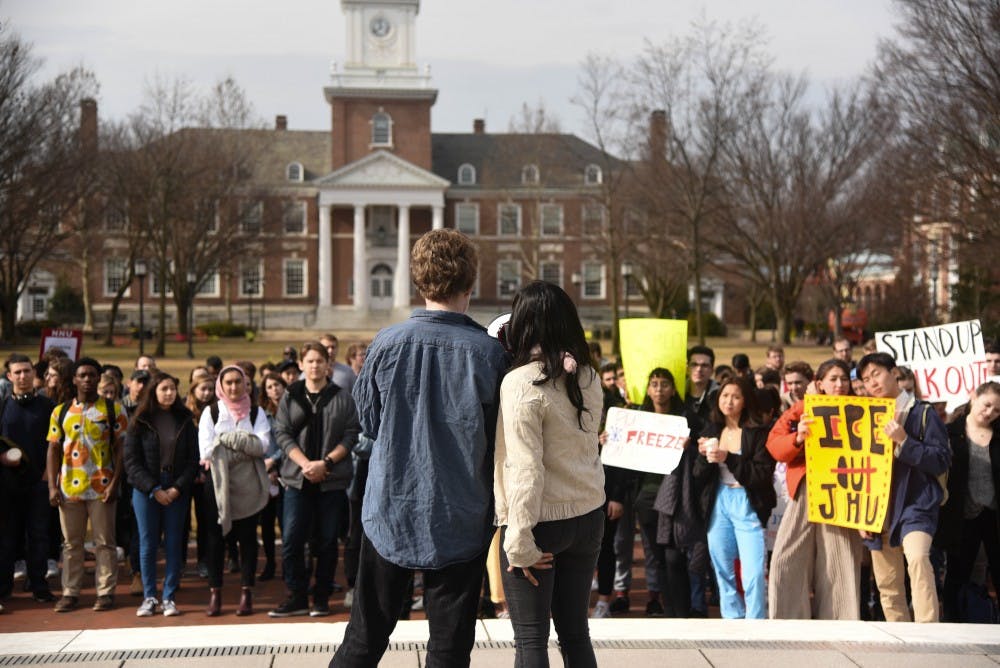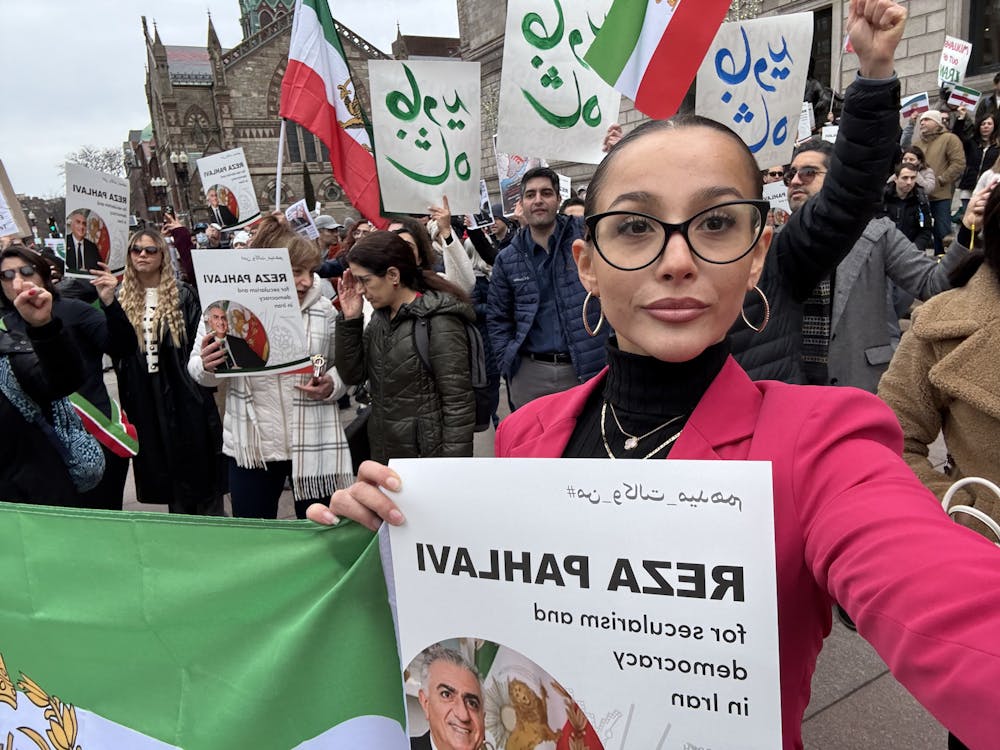As we begin Black History Month, it is an optimal time to reflect on the noble efforts of African Americans to gain legal and constitutional rights for minorities during the Civil Rights Movement. While considering the actions taken by the brave men and women of this community, it is important for us to note that the success of the movement was partially due to the influential work of students. From participating in walkouts and sit-ins to organizing and leading protests, young people helped to spearhead the Civil Rights Movement.
Experiencing and witnessing the effects of injustice in society while remaining idle is ignorant and unacceptable. Today, as Hopkins students and faculty, we can either take action against the University’s ongoing contracts with the Immigration and Customs Enforcement agency (ICE) or continue to be complicit.
ICE is responsible for enforcing immigration laws by the means of processing, detaining and deporting undocumented immigrants in the U.S. Over the years, ICE’s actions against immigrants have escalated, especially under the Trump administration. ICE has separated migrant children from their families and held them at detention centers in cages. These inhumane practices caused major uproar from many Americans, who compared these centers to the internment camps where Japanese Americans were held during World War II.
The perception of immigrants as criminals or threats to national security has long permeated through American society and has in turn negatively affected hardworking immigrants. This perception discredits all of the brilliant innovations and advancements that they have historically contributed to this country.
The University has a history of involvement with ICE that dates back to the contracts they signed in 2008. As of November 2018, Hopkins has made more than $7 million from 37 contracts with ICE that require the University to provide medical training and leadership development services to ICE agents.
Through earning millions of dollars from this corrupt and highly controversial law enforcement agency, Hopkins is inadvertently aiding ICE personnel in their work that targets one of America’s most vulnerable populations.
While Hopkins tends to boast about its efforts to increase diversity in both its undergraduate and graduate schools, its contracts with ICE do not showcase a spirit of inclusion.
Undocumented immigrants and Deferred Action for Childhood Arrivals (DACA) students — also known as DREAMers — already constitute a low percentage of the population at Hopkins, which can make them feel even more disconnected from the community. Others have relatives and friends who are undocumented immigrants. The University’s ties with ICE only serve to create an even greater divide between these members of the community and the rest of the student body.
As students, faculty and staff of this institution, it is our duty to hold Hopkins accountable for all of its actions that prove to be detrimental to members of our community. When reflecting on our nation’s long history of injustice and racism, it is crucial to realize that change only comes when a group of compassionate individuals join together to uplift their voices and have them heard.
In the Civil Rights Movement, the students and youth of the era took it upon themselves to sacrifice their time and energy for the hope of advancing their fellow African Americans forward. At Hopkins, we must take inspiration from these bold, courageous efforts and apply the same principles to our own fight against the University’s contracts with ICE.
Sign petitions. March in protests like the one held outside of Brody Learning Commons this Wednesday, Feb. 6. Attend the Hopkins Coalition Against ICE meetings.
By doing so, we would not only be supporting immigrants at our institution and around the country, but we would also be showing the Hopkins administration that we will not remain complicit while they continue to aid a corrupt agency that does not embody the values of this community.
Maiss Mohamed is a freshman majoring in Public Health Studies from Falls Church, Va.





